Vienna Logic Weeks 2012
[no_toc]
The Vienna Logic Weeks 2012 present a unique opportunity to experience several academic events from logic-related areas in the course of two weeks in September 2012. The academic events include the Reasoning Web 2012 Summer School, the 6th International Conference on Web Reasoning and Rule Systems, the 4th International Conference on Computational Models of Argument and the Datalog 2.0 2012 Workshop.
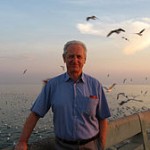 The eminent logician and computer scientist Robert Kowalski will be the plenary speaker at the Vienna Logic Weeks 2012 with his talk “Towards a Logic-based, Unifying Framework for Computing” (see abstract), which will be held on September 11th at 4:30 pm in lecture room 8 at the main building of the Vienna University of Technology.
The eminent logician and computer scientist Robert Kowalski will be the plenary speaker at the Vienna Logic Weeks 2012 with his talk “Towards a Logic-based, Unifying Framework for Computing” (see abstract), which will be held on September 11th at 4:30 pm in lecture room 8 at the main building of the Vienna University of Technology.
For a list of invited speakers for the individual conferences, please see below.
Reasoning Web 2012 Summer School
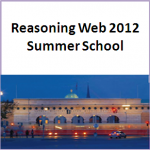 From September 03-08, 2012, the 8th Reasoning Web Summer School will take place at the Vienna University of Technology, focusing on foundational issues concerning the development and the use of logic-based languages, reasoning on and querying of the Semantic Web. For more information, please visit http://reasoningweb.org/2012/.
From September 03-08, 2012, the 8th Reasoning Web Summer School will take place at the Vienna University of Technology, focusing on foundational issues concerning the development and the use of logic-based languages, reasoning on and querying of the Semantic Web. For more information, please visit http://reasoningweb.org/2012/.
6th International Conference on Web Reasoning and Rule Systems
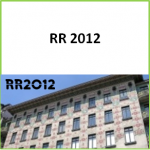 This conference takes place from September 10-12, 2012 and covers a wide range of topics related to Web Reasoning. For more information, please visit http://www.rr-conference.org/RR2012/.
This conference takes place from September 10-12, 2012 and covers a wide range of topics related to Web Reasoning. For more information, please visit http://www.rr-conference.org/RR2012/.
4th International Conference on Computational Models of Argument
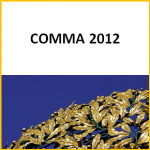 COMMA 2012 will also take place from September 10-12, 2012, presenting the latest research results related to computational aspects of argumentation. For more information, please visit http://www.kr.tuwien.ac.at/events/comma2012/.
COMMA 2012 will also take place from September 10-12, 2012, presenting the latest research results related to computational aspects of argumentation. For more information, please visit http://www.kr.tuwien.ac.at/events/comma2012/.
Datalog 2.0 2012 Workshop
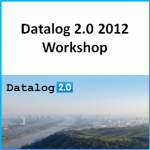 The Datalog 2.0 Workshop will be held from September 11-13, 2012 and centers around foundational aspects of Datalog, as well as on its applications in other areas of computer science and in industry. For more information, please visit http://www.dbai.tuwien.ac.at/event/datalog-2.0/.
The Datalog 2.0 Workshop will be held from September 11-13, 2012 and centers around foundational aspects of Datalog, as well as on its applications in other areas of computer science and in industry. For more information, please visit http://www.dbai.tuwien.ac.at/event/datalog-2.0/.
At a Glance
| September 2012 | ||||||||||
| Mon 03 | Tue 04 | Wed 05 | Thu 06 | Fri 07 | Sat 08 | Sun 09 | Mon 10 | Tue 11 | Wed 12 | Thu 13 |
| Reasoning Web 2012 Summer School | RR 2012 | |||||||||
| COMMA 2012 | ||||||||||
| Datalog 2.0 2012 | ||||||||||
Invited Speakers
RR2012
Gerhard Brewka, University of Leipzig, Germany
Tommaso di Noia, Technical University of Bari, Italy
COMMA 2012
Trevor Bench-Capon, University of Liverpool, United Kingdom
Erik Krabbe, University of Groningen, The Netherlands
Keith Stenning, University of Edinburgh, United Kingdom
Datalog 2.0 2012
Thomas Eiter, Vienna University of Technology, Austria
Yuri Gurevich, Microsoft Research
Phokion Kolaitis, UC Santa Cruz, USA
Oege de Moor, Oxford University, United Kingdom
Marie-Laure Mugnier, University of Montpellier, France
Lecturers for the Reasoning Web 2012 Summer School
Marcelo Arenas, Pontificia Universidad Catolica de Chile
François Bry, University of Munich, Germany
Sergio Flesca, University of Calabria, Italy
Tim Furche, University of Oxford, UK
Georg Gottlob, University of Oxford, UK
Manfred Hauswirth, DERI, National University of Ireland, Galway
Manolis Koubarakis, National and Kapodistrian University of Athens, Greece
Markus Krötzsch, University of Oxford, UK
Danh Le Phuoc, DERI, National University of Ireland, Galway
Giorgio Orsi, University of Oxford, UK
Magdalena Ortiz, Vienna University of Technology, Austria
Josiane Xavier Parreira, DERI, National University of Ireland, Galway
Jorge Pérez, Universidad de Chile
Andreas Pieris, University of Oxford, UK
Guilin Qi, South Eastern University, China
Sebastian Schaffert, Salzburg Research, Austria
Mantas Šimkus, Vienna University of Technology, Austria
Francesca Toni, Imperial College London, UK
Denny Vrandecic, Karlsruhe Institute of Technology, Germany
Klara Weiand, University of Munich
“Towards a Logic-based, Unifying Framework for Computing” (Robert Kowalski)
Computing, as a scientific discipline, lacks a unifying framework. It consists, instead, of diverse techniques in such various areas as programming, databases, and artificial intelligence.
Logic programming was an early attempt to provide a unifying framework for computing, based on the use of logic for knowledge representation and problem-solving. This attempt had only limited success, arguably because it failed to address adequately the fundamental role of state transition systems in computing.
In this talk, I sketch a logic-based framework for state transition systems, in which states can variously represent sets of shared variables, relational databases, Herbrand models, or mental representations of the real world. Given an initial set of goals, the computational task is to solve the goals by generating an appropriate sequence of actions and associated state transitions. Logically, the task is to make the goals true by generating a model of the goals with an explicit representation of time. Operationally, the task is solved by maintaining only the current state and updating it destructively. Frame axioms, which express that any facts not affected by an action persist from one state to the next state, are true in the model, but are not used operationally to generate it.
